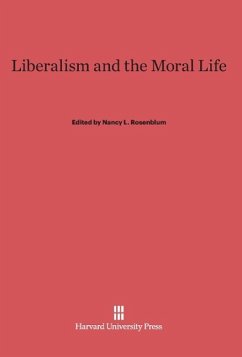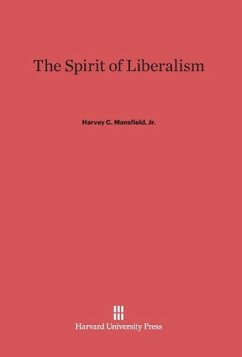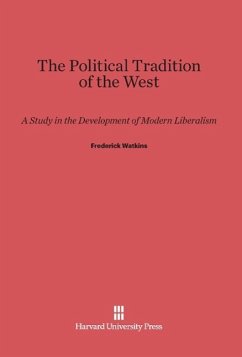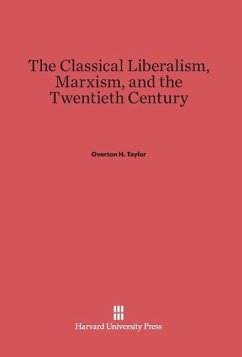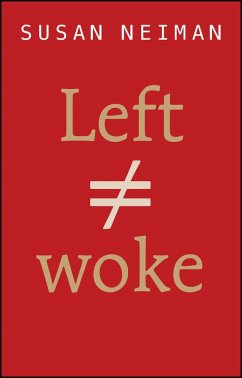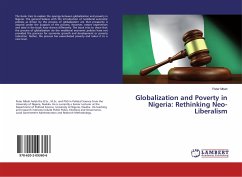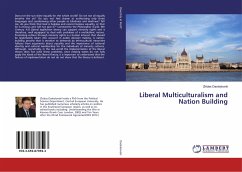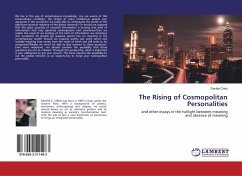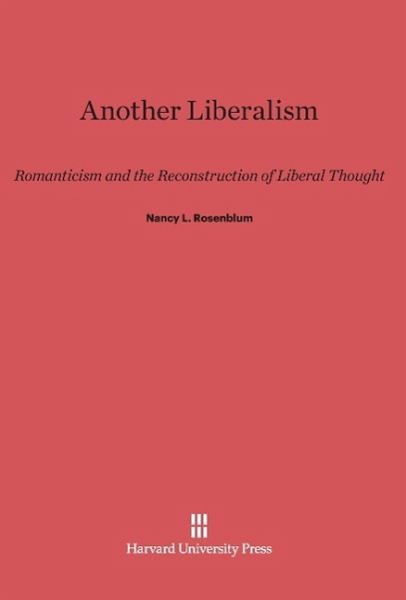
Another Liberalism
Romanticism and the Reconstruction of Liberal Thought
Versandkostenfrei!
Versandfertig in 6-10 Tagen
60,00 €
inkl. MwSt.

PAYBACK Punkte
0 °P sammeln!
Another Liberalism contributes an original perspective to debates about the nature and foundations of liberal thought. In it Nancy Rosenblum describes the dynamic of romanticism and liberalism as one of mutual opposition and reconciliation. She argues that romanticism sees liberalism as cold, contractual, and aloof. And conventional liberal legalism disdains romanticism's longing for all that is personal, unique, and expressive.We learn, however, that romanticism, chastened by its excesses and frustrated by its failures, can "come home" to liberalism. We also learn that liberalism can accommod...
Another Liberalism contributes an original perspective to debates about the nature and foundations of liberal thought. In it Nancy Rosenblum describes the dynamic of romanticism and liberalism as one of mutual opposition and reconciliation. She argues that romanticism sees liberalism as cold, contractual, and aloof. And conventional liberal legalism disdains romanticism's longing for all that is personal, unique, and expressive.
We learn, however, that romanticism, chastened by its excesses and frustrated by its failures, can "come home" to liberalism. We also learn that liberalism can accommodate individuality and expressivity, reclaiming what it had repressed. Rosenblum creates a typology of romantic reconstructions of liberal thought: heroic individualism, communitarianism, and a new face of pluralism.
The author draws on nineteenth--and twentieth--century philosophy and literature: on Thoreau, Humboldt, Constant, Stendhal, and Mill, among others, and on contemporary political theorists for whom romanticism is a source not only of aversion to liberalism but also of resources for reform.
We learn, however, that romanticism, chastened by its excesses and frustrated by its failures, can "come home" to liberalism. We also learn that liberalism can accommodate individuality and expressivity, reclaiming what it had repressed. Rosenblum creates a typology of romantic reconstructions of liberal thought: heroic individualism, communitarianism, and a new face of pluralism.
The author draws on nineteenth--and twentieth--century philosophy and literature: on Thoreau, Humboldt, Constant, Stendhal, and Mill, among others, and on contemporary political theorists for whom romanticism is a source not only of aversion to liberalism but also of resources for reform.



